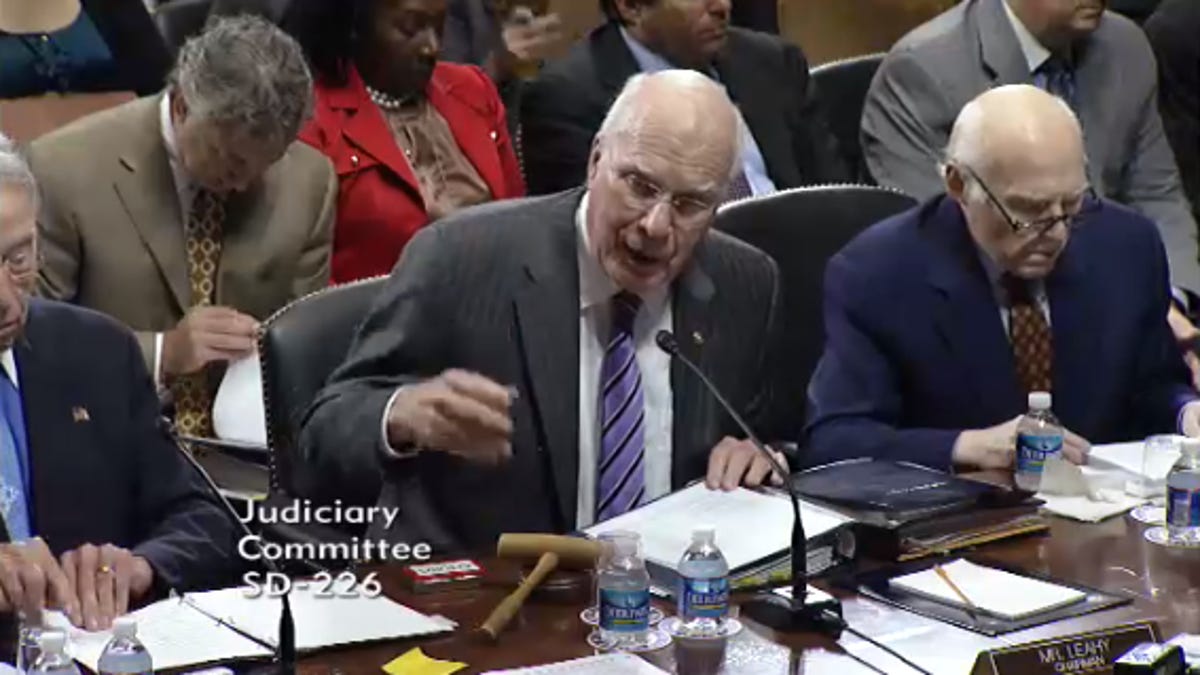Senate delays Netflix, e-mail privacy fix after cops protest
The National Sheriffs' Association asked senators to "reconsider acting" on a privacy bill until a "review of its impact on law enforcement investigations is conducted." Senators obliged the boys in khaki.

A Netflix-backed bill to update an antique 1988 privacy law, crafted a generation before social networks and cloud computing became popular, was derailed today because of last-minute opposition from law enforcement officials.
Sen. Patrick Leahy, the Vermont Democrat who heads the Judiciary committee, postponed discussion on the proposal to update the dialup-era privacy law, likely pushing a final vote into the new Congress that will convene in 2013.
The delay comes two days after a phalanx of law enforcement organizations objected to the legislation, asking Leahy to "reconsider acting" on it "until a more comprehensive review of its impact on law enforcement investigations is conducted." The groups included the National District Attorneys' Association and the National Sheriffs' Association.
In an unusual procedural twist, the groups have no objections to Netflix's effort to upgrade the Reagan-era law. What worries them is an unrelated bill -- which Leahy glued onto the video privacy measure -- requiring police to obtain search warrants before accessing files stored in the cloud, including e-mail.
Leahy said his colleagues "said they want further discussion of this, so we'll do nothing further" until the next committee meeting. That meeting has not been scheduled.
Netflix's efforts to amend the 24-year-old Video Privacy Protection Act, which would allow customers the option of Facebook integration, initially seemed like an easy legislative win for the company. The measure quickly cleared the House by a vote of 303-116, with opposition limited to groups including the ACLU and the Electronic Privacy Information Center, while the Center for Democracy and Technology called it perfectly "reasonable."
But Leahy's decision to meld together the video-sharing and email-warrant bills threw a roadblock in front of Netflix's lobbying efforts by irking law enforcement, including the Obama Justice Department.
A person participating in Capitol Hill meetings on this topic told CNET that Justice Department officials have been expressing their displeasure about requiring search warrants. The department is on record as opposing such a requirement: James Baker, the associate deputy attorney general, has publicly warned that requiring a warrant to obtain stored e-mail could have an "adverse impact" on criminal investigations.
Leahy wants to take more time to work with law enforcement and give other Judiciary committee members more time to review the legislation and propose their own amendments, a Democratic Senate source told CNET today.
Netflix put the best face on the delay -- the November 6 elections mean little legislative work will be done on the topic this year. Joris Evers, a Netflix spokesman, said it was still "progress."
In a blog post a year ago, Netflix said the VPPA's outdated definitions mean that U.S. customers will not be able to "automatically share the television shows and movies they watch with their friends on Facebook." The feature is available to Netflix's 3.6 million streaming customers outside the United States.
The Senate Judiciary committee did unanimously agree to replace the original VPPA-specific bill with Leahy's substitute version that added the search-warrant language amending the Electronic Communications Privacy Act, a move that a Democratic staffer said was a step forward.
The reason Leahy seems to have fused together these two unrelated bills is that the Netflix amendment was GOP-backed (it was introduced by Rep. Bob Goodlatte, a Virginia Republican, and was approved by the House on a largely party-line vote). By melding something Republicans want with something Democrats want, the typical calculation goes, both sides should support the final version.
That combination has left the ACLU, which wrote a letter (PDF) to Congress in January opposing the Netflix-backed VPPA amendments but has pressed for e-mail search warrants, in a tricky position.
"We asked that if they take this up in the next Congress, they take it up separately," Chris Calabrese, the ACLU's legislative counsel, said today. "We do not support the VPPA change." But if they remain combined, Calabrese said, his organization would support the amalgamated bill.
Last updated at 1 p.m. PT

